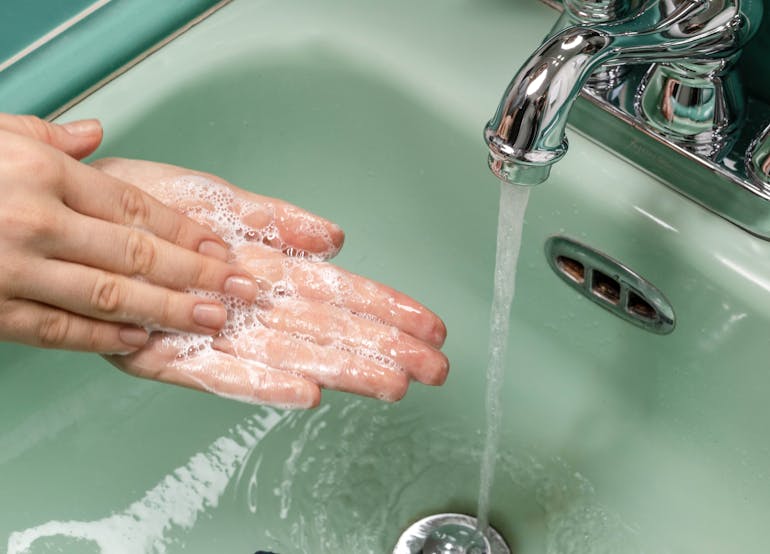What is the coronavirus (COVID-19) and how can I stay protected?
Reviewed and fact-checked by Giulia Guerrini, Superintendent Pharmacist. Read our editorial policy to see how we create informative, accurate content.
What is COVID-19
The Wuhan Novel Coronavirus (COVID-19) has been widely reported in recent weeks so we thought we’d help to put any worries at rest. It’s a type of virus within the Coronaviruses' family and was first identified in Wuhan City, China, but now cases of people affected by COVID-19 have been diagnosed in other Chinese provinces and other countries, including the UK. The source of the outbreak and route of transmission is still unclear. We do know that other viruses from the coronaviruses family are mainly transmitted by direct or indirect contact with infected secretions (saliva for example), by unprotected airborne exposure and in some cases by exposure to infected blood, faeces material and urine. Prevention
COVID-19 remains an unknown virus, but because we know that its brothers in the coronaviruses family can transmit from person to person, taking some precautions to prevent its transmission seems reasonable, especially in the absence of effective drugs or a vaccine. We’re not saying you have to wear one of those hazmat suits or keep yourself hidden away from anyone but we’ve put together a few helpful tips to minimise the risk of contamination. Wash your hands and use hand sanitisers
Luckily, Coronaviruses don't like a wide range of disinfectants and hand sanitizers, therefore the first step would be to pay extra attention to your hand hygiene. Try to wash your hands more often with soap. and warm water for at least 20-30 seconds or use an alcohol-based hand sanitiser (60% alcohol or above) when you’re on the go and your hands are not visibly dirty. Also, as bad as you might want to scratch that itch, try not to touch your eyes, mouth or nose with your hands. The World Health Organisation (WHO) recommends to wash your hands: - before and after preparing food
- before and after eating
- after using the toilet
- when hands are visibly dirty
- after coughing, sneezing or blowing your nose
- when caring for the sick
- after handling animals or animal waste
Coughing, sneezing and blowing your nose
There’s no need for crazy new breathing techniques, we recommend you continue to breathe as usual but take all the precautions you’d normally take when a common cold or flu is circulating:
- Make sure your mouth and nose are covered with a tissue when sneezing, coughing, wiping or blowing your nose;
- Throw the tissue in a closed bin immediately after use;
- Clean your hands afterwards. Remember Coronaviruses don't like most hand sanitisers and soaps;
- If you choose to wear a face mask, make sure you cover your nose and mouth and avoid touching the mask once it's on. Also, avoid using the same disposable mask more than once, disposable masks must be thrown after each use and can't be recycled.
Care for others
I’d assume that you don’t normally go sneezing, coughing and blowing your nose right on other’s people face, nor that you walk around spitting on the street, but if you do, it’s best to stop that.
It’s unnecessarily spreading germs and increasing the risk of contaminating other people.
These basic good-manner tips will definitely reduce the chance you’ll catch an infection, and reduce the chance other people around you will too. So if you’re experiencing a cough and fever avoid close contact with others and make sure to seek medical attention when needed.

